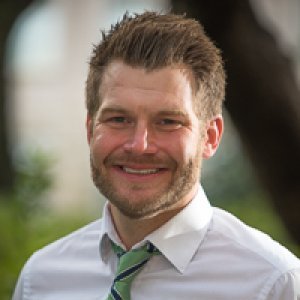Dr. Blaine Fisher
Professor in Information Technology, Emergency Management, Archaeology, GIS/Remote Sensing and an Instructional Technology Manager and Geospatial Scientist

Biography
Dr. Blaine Fisher is a dynamic and multifaceted academic and professional, seamlessly blending expertise across diverse fields to make a profound impact in both education and scientific research.
Dr. Fisher earned his Ph.D. in Geography and Anthropology from Louisiana State University, specializing in Maya Archaeology. His academic portfolio also includes a Bachelor’s degree from Southeastern Louisiana University, a Master’s in Healthcare Management from the University of New Orleans, a Master’s in Liberal Arts from Tulane University, and a Post-Graduate Certificate in Geographic Information Systems (GIS) from Tulane University. This extensive educational background, coupled with his over 8 years of experience as a paramedic, underpins his commitment to continuous learning and intellectual curiosity.
At Tulane University, Dr. Fisher is at the forefront of integrating AI into higher education. As a leading figure in the university’s professional development initiatives, he trains faculty on how to effectively use AI in the classroom and teaches them how to adapt their pedagogy to the rapidly evolving technological landscape. Dr. Fisher extends his impact by leading AI Bootcamps in the broader community, fostering community enrichment and enhancing public understanding of AI technologies.
In the course "AI in Modern Society," Dr. Fisher guides students through the dynamic intersection of artificial intelligence and its profound influence on our lives and communities. The course is designed to unravel the complexities of AI technologies and their ethical, societal, and transformative impacts. Students explore foundational concepts such as machine learning and neural networks, examine AI’s role across various sectors, and critically analyze the ethical implications of AI, including privacy, security, and the future of work. By the end of the course, students are equipped with a critical understanding of AI’s integration into various aspects of modern life, enabling them to engage in informed discussions and navigate the evolving landscape of AI within society.
Education
Louisiana State University
Tulane University
University of New Orleans
Tulane University
Southeastern Louisiana University
National EMS Academy
Accomplishments
John Percy Dyer Award
2017
Media Appearances
The National Desk: Elon Musk's AI company unveils Grok 3, claims it outperforms rivals
Blaine Fisher, a cyber expert at Tulane University, and Rajiv Garg, also a cyber expert at Emory University tell us, at first glance, Grok 3 is quite impressive
The National Desk: New bill suggests getting rid of DeepSeek
“I think the next thing will be like TikTok and ban it at a universal level. That has not been talked about this bill yet, but that’s just a logical next step,” Tulane University professor Blaine Fisher said.
FBI issues new warning; be on the lookout for specific language in emails
"Act now, immediate action required, this needs to happen fast. Anything that's pressuring a sale or pressuring some kind of action means that they want the user to act before they can think and look at it further and I think it can be a little more eloquent with AI now," said Blaine Fisher, a professor in Tulane University's School of Professional Advancement.
Chemical fire in Lake Charles after Hurricane Laura's landfall prompts shelter-in-place order
Chlorine gas is one of the most common gases produced in the U.S. and was used as a weapon in World War I, said Blaine Fisher, a health care and emergency management expert at Tulane University.
Disaster Relief Pt. 2: From 'Food Line' to Front Line
First, we hear a first-person account from Blaine Fisher, a Louisiana native and former paramedic who now teaches Emergency Management at Tulane University. We also hear from Keron Bascombe of Tech4Agri, a Trinidad and Tobago-based social enterprise aimed at providing "AgriRecoveryKits" to people who are food insecure due to natural disasters and the pandemic. But first, we pick up where we left off in Part 1 with Nate Mook of World Central Kitchen to talk about government's role in disaster preparedness,

